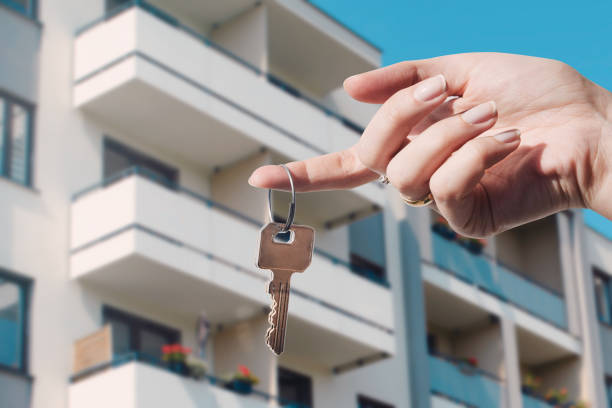Finding Affordable Housing: No Deposit Apartments for Rent
Searching for a new apartment can be challenging, especially when faced with substantial upfront costs. No deposit apartments for rent offer an attractive solution for many prospective tenants. These rental options eliminate or significantly reduce the initial financial burden, making it easier to secure housing without a large sum of money upfront. This article explores the concept of no deposit apartments, how to find them, and the benefits they offer to renters.

What are no deposit apartments for rent?
No deposit apartments are rental properties that don’t require tenants to pay a traditional security deposit before moving in. Instead of a lump sum payment, these arrangements may involve alternative security measures or financial agreements between the landlord and tenant. This approach can make renting more accessible, especially for those who struggle to save up for hefty security deposits.
How do no deposit rental agreements work?
In a no deposit rental agreement, landlords typically employ alternative methods to protect their property and ensure tenant responsibility. These may include:
-
Pay-as-you-go security deposits: Small monthly payments added to the rent instead of a large upfront sum.
-
Surety bonds: A third-party insurance policy that covers potential damages or unpaid rent.
-
Cosigner agreements: A financially stable individual agrees to cover any losses if the tenant defaults.
-
Higher monthly rent: Slightly increased rent to offset the risk of not having a security deposit.
Each arrangement has its pros and cons, and the specific terms can vary depending on the landlord and property management company.
Where can you find no deposit apartments for rent?
Finding no deposit apartments requires some research and persistence. Here are some effective strategies:
-
Online rental platforms: Websites like Zillow, Apartments.com, and Hotpads often have filters for no deposit options.
-
Local property management companies: Some companies specialize in no deposit rentals or offer them as part of their portfolio.
-
Social media and community groups: Facebook Marketplace and local housing groups can be good sources for these listings.
-
Real estate agents: Some agents may have connections to landlords offering no deposit rentals.
-
Direct inquiries: Contact landlords or property managers directly to ask about no deposit options, even if not advertised.
Remember to thoroughly research any potential rental to ensure it’s legitimate and meets your needs.
What are the benefits of renting a no deposit apartment?
No deposit apartments offer several advantages for renters:
-
Lower upfront costs: The most significant benefit is the reduced initial financial burden, making it easier to move into a new place.
-
Improved accessibility: These rentals open up housing options for those who struggle to save large sums of money.
-
Flexibility: Some no deposit arrangements offer more flexibility in how you secure the property.
-
Potential for better apartments: Without a large deposit, you might be able to afford a nicer apartment or better location.
-
Faster move-in process: With less paperwork and financial hurdles, you can often move in more quickly.
Are there any drawbacks to no deposit apartments?
While no deposit apartments offer many benefits, there are some potential drawbacks to consider:
-
Higher monthly rent: To offset the risk, landlords may charge slightly higher rent.
-
Limited options: No deposit apartments may be less common, potentially reducing your choices.
-
Stricter screening: Landlords might have more rigorous application processes to mitigate their risk.
-
Potential for additional fees: Some arrangements may include administrative or insurance fees.
-
Less incentive for proper maintenance: Without a deposit at stake, some tenants might be less careful with the property.
How to secure a no deposit apartment for rent
To increase your chances of successfully renting a no deposit apartment:
-
Maintain a good credit score: This demonstrates financial responsibility to potential landlords.
-
Prepare strong references: Positive feedback from previous landlords can help build trust.
-
Show proof of stable income: Demonstrating reliable employment or income sources is crucial.
-
Be prepared to negotiate: Some landlords may be open to no deposit arrangements if you can offer other assurances.
-
Read the lease carefully: Understand all terms and conditions, especially regarding damages and end-of-lease expectations.
-
Consider offering a higher rent: If you can afford it, this might make landlords more amenable to a no deposit agreement.
No deposit apartments for rent can be an excellent option for many tenants, offering a more accessible path to quality housing. By understanding how these arrangements work and following the tips provided, you can navigate the rental market more effectively and find a suitable no deposit apartment that meets your needs and budget.




